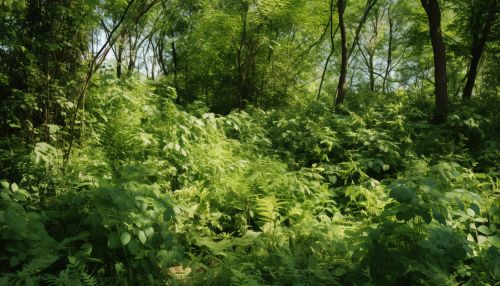The Ecology of Invasive Plant Species
Introduction
Invasive plant species are non-native plants that have been introduced into new environments, where they often have significant impacts on the local ecology. These plants can alter the structure and function of ecosystems, affecting biodiversity, nutrient cycling, and other ecological processes.
Characteristics of Invasive Plant Species
Invasive plant species often share certain characteristics that allow them to thrive in new environments. These include rapid growth rates, high reproductive rates, and the ability to adapt to a wide range of environmental conditions. Many invasive plants are also resistant to pests and diseases, which can give them a competitive advantage over native species.


Impacts on Ecosystems
Invasive plant species can have profound impacts on the ecosystems they invade. They can outcompete native species for resources, alter habitat structure, and disrupt food webs. In some cases, invasive plants can even alter the physical characteristics of an ecosystem, such as changing soil chemistry or hydrology.
Case Studies
Purple Loosestrife
Purple Loosestrife is a perennial plant native to Europe and Asia that has become invasive in North America. It grows in wetlands and can form dense stands that outcompete native vegetation, reducing biodiversity and altering wetland habitats.
Japanese Knotweed
Japanese Knotweed is a highly invasive plant native to East Asia that has spread to Europe and North America. It grows rapidly and can cause significant damage to infrastructure, as well as outcompeting native vegetation.
Management of Invasive Plant Species
The management of invasive plant species involves a combination of prevention, early detection, and control measures. These can include mechanical removal, chemical control, and biological control methods. In some cases, restoration of native vegetation may also be necessary.
Conclusion
Invasive plant species pose a significant threat to ecosystems around the world. Understanding their ecology and impacts is crucial for developing effective management strategies and protecting biodiversity.
